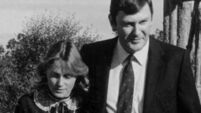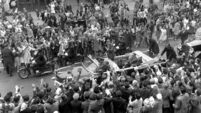Colin Sheridan: Great poet Shane MacGowan’s written words will endure

Shane MacGowan: 'The Pogues frontman seemed forever on the edge of the abyss, a high-wire act that saw him live a dozen lives in one.' Picture: Frans Schellekens/Redferns
Shane MacGowan died on Thursday at the age of 65, bringing the final curtain down on the life of one of music’s most charismatic and loveable rogues. As tortured as he was talented, reaching the age he did could well be regarded by some as a remarkable feat, given the hedonistic life he lived, the songbook he created and music he inspired.
The Pogues frontman seemed forever on the edge of the abyss, a high-wire act that saw him live a dozen lives in one. That it finally came to an end under the watchful gaze of the one person that loved him more than he probably loved himself is testimony to his genius, torment and rebellious charm.
It’s 22 years since cartoonist Tim Bradbury published his illustrated book , and though that title was tongue in cheek, the question was sadly as apt in 2001 as it was last week.
Born in Kent on Christmas Day 1957 to Irish parents, MacGowan’s early years were not as representative of the typical Irish diaspora experience as one might think. A precocious child, by the age of 12 MacGowan was reading Dostoevsky, Sartre, and Joyce.
Having initially attended Holmewood House preparatory school in Langton Green, he won a scholarship to the exclusive Westminster School, though his time there was short-lived as he was found in possession of drugs and expelled in his second year. There followed a difficult period in which MacGowan suffered a breakdown that saw him briefly institutionalised.
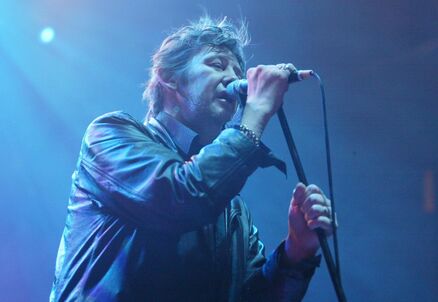
Irish music in particular had always been in his life, spending childhood summers with his mother’s family in Tipperary, formative years that undoubtedly shaped his future artistic sensibilities. A regular on the London punk rock scene in the 1970s, MacGowan surfed the wave of Sex Pistols mania, publishing a fanzine and gaining national notoriety after his ear was partially bitten off at a Clash gig, an incident that was written up in . Not long after, he formed his first band, the Nipple Erectors, with girlfriend Shanne Bradley.
Fronting his own band increased MacGowan's exposure to like-minded people, and in the early 1980s he began playing with friends Spider Stacy and Jem Finer in an Irish-folk side project that would eventually become the first iteration of The Pogues. Streams of Whiskey, the first song he wrote for the band, was an homage to writer Brendan Behan, and a very overt foreshadowing of the trajectory MacGowan's own life would follow;
To be Irish in London in the '80s was a difficult thing, and MacGowan’s brand of post-punk Irish folk-rock was an affront to the establishment — namely Thatcher's England. Violence stalked him everywhere he went, and, fuelled by the very juice that powered his hero Behan, he started as many fights as were visited upon him.
His rapscallion nature gained The Pogues notoriety, but it was the dexterity of his songs that brought them critical acclaim. Celtic mysticism, Irish literature, poetry, drink, sex; each one of them traced a line through MacGowan's songs like a tributary running down a mountain. There were love songs (A Pair of Brown Eyes, A Rainy Night in Soho), protest songs (Streets of Sorrow/Birmingham Six), and the unlikeliest Irish Christmas number one in musical history — Fairytale of New York — his collaboration with the late Kirsty McColl that is as ubiquitous today as it is a pleasure on the ears.
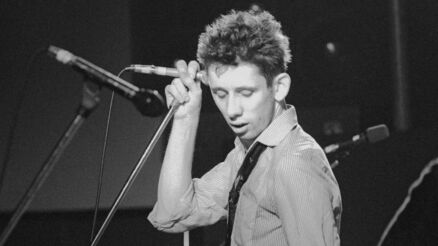
MacGowan’s music achieved something nobody had managed to do before, or arguably since — capture not just the zeitgeist of an emigrant looking home, but of an emigrant son, living now, in a strange city.
His music was about both Ireland and London, lyrics dotted with place names, pub names and people’s names, a sentient map of time and place, all scored to a cacophony of tin whistles and hard drums. There was much melancholy, but there was hope and romance, too.
After initially opening for Elvis Costello, The Pogues started headlining their own gigs while touring their Costello-produced second album, .
As the touring increased, so did their popularity, notoriety, and MacGowan's penchant for self-destruction. His first reported hospitalisation as Pogues frontman came in 1985 for pneumonia, just as The Pogues were hitting their first peak of fame.
They toured America, selling out arenas, and their third and best album, , followed. MacGowan’s excessive drinking and drug use continued to cause more and more internal strife within the band. The tipping point came when the Pogues were invited to open six shows for Bob Dylan in 1989.
MacGowan failed to show up because he was holed up in a friend’s apartment in London. The band played the shows without him, though, as one biographer wryly noted, it’s not clear if Dylan even noticed. He was eventually fired from The Pogues during a tour of Japan in 1991. One of the world's most exciting live acts had lost its charismatic frontman.
He survived, then, and returned with a new band, Shane MacGowan and the Popes. Eschewing the traditional Irish influence of The Pogues, the Popes walked along — staggered, even — a more typical rock’n’roll path. They had their moments, but even then it was clear MacGowan’s creative apex had passed.
The rest of the 90s was a blur, as MacGowan descended further into alcoholism and became addicted to heroin, only getting clean in 2000 after Sinéad O’Connor reported him to the police with the blessing of his wife, Victoria Mary Clarke.
The Pogues reformed in 2001, sporadically playing tribute gigs to themselves, but recording no new music. They split again — or simply stopped performing — in 2014.
In between, there were countless collaborations and cover versions. Friends such as Joe Strummer and O’Connor stood by him, despite numerous public displays of disobedience. Admirers such as Bruce Springsteen lauded him for his contributions to music.
“I truly believe,” the Boss said in a 2020 interview on the , “that a hundred years from now, most of us will be forgotten. But I do believe that Shane’s music is going to be remembered and sung. It’s just deep in the nature of it”.
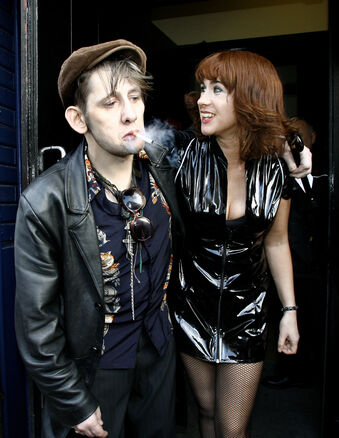
There have been many such testimonials over the last two decades. Each one has read like a eulogy at his funeral.
In 2018, crowning a relationship that had miraculously survived over 20 years, MacGowan married Irish journalist Clarke, and it is she who has assumed the role of carer for MacGowan in the last, extremely testing years of his absurdly testing life. Some would say that care began much, much earlier.
In an inevitably disastrous interview MacGowan gave to in 2022, the unfortunate interviewer Simon Hattenstone recounts in excruciating detail his efforts to elicit any sort of a discernable response from a depressed MacGowan, as Clarke sits attentively by his side, eternally hopeful.
Eventually, Hattentsone gives up, realising his efforts to be as futile as the singer's resistance to the gin and tonic he sipped throughout.
Despite the sadness of MacGowan’s final years, as with all the great poets, it will be his written word that ultimately endures, meaning we will remember much less the excesses of his tortured life, and more the magic of his music:

